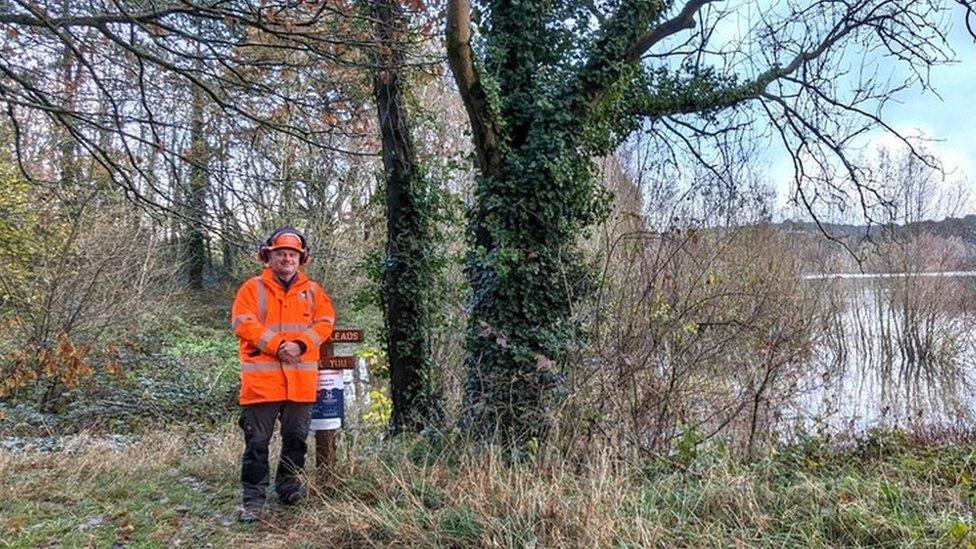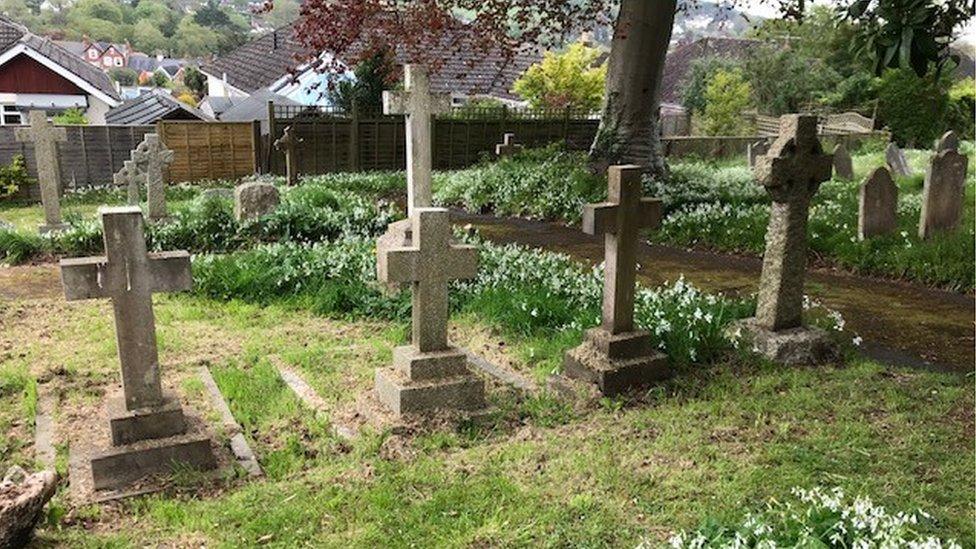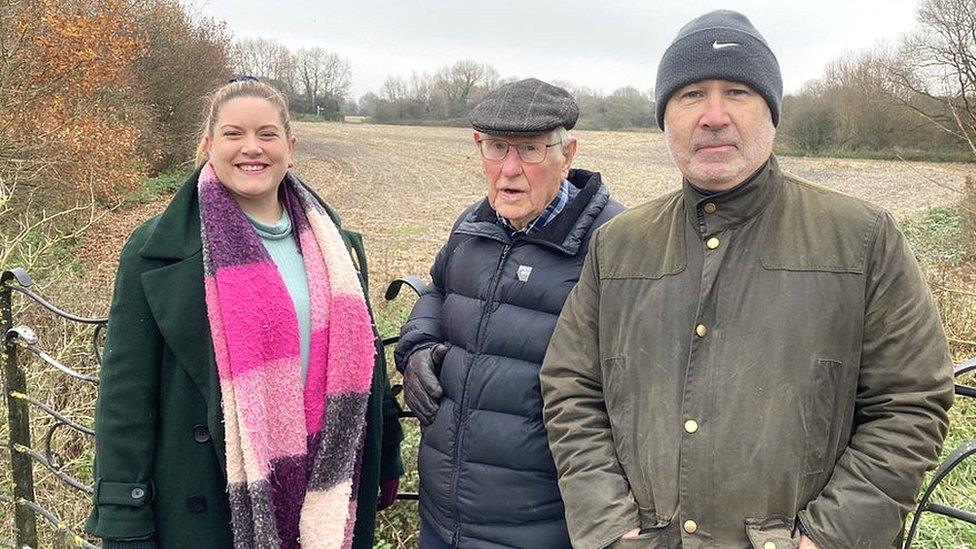Bristol Water fights ash dieback to protect delicate habitat
- Published

Simon Hughes (pictured) said the project "benefits biodiversity, people and water resources"
A water company is trying to protect woodlands and wildlife from the spread of the fungal tree disease ash dieback.
The project is organised by Bristol Water, which owns large areas of woodland, including around its Blagdon Lake and Chew Valley Lake reservoirs.
The areas are popular with the public but have been badly affected by the disease that gradually kills ash trees.
Their study is aimed at removing unsafe parts of ash trees whilst carefully maintaining roots and natural habitats.
Bristol Water's Treescape Officer, Simon Hughes, said: "Our sites connect to many other important habitats across the Mendips and if we want wildlife to thrive, we need to proactively maintain and enhance the areas we look after."
Methods used include mechanical arms to protect the forest floor, which remove only the sides of diseased trees facing footpaths where possible.
Protecting 'delicate habitat'
They also leave leftover vegetation for small mammals to use over the winter, helping to protect and increase biodiversity.
"By carrying out this work in a sympathetic way, we have protected a delicate habitat that has taken many years to establish," Mr Hughes said.
Other work includes opening an area of land around Blagdon Lake to bring in more light and speed up sapling growth, as well as planting trees with similar ecological attributes to ash.
The team also increased hedgerows around the lake and through woodlands to create wildlife corridors, providing further opportunities for a range of species to prosper.

Follow BBC West on Facebook, external, X, external and Instagram, external. Send your story ideas to: bristol@bbc.co.uk , external
Related topics
- Published24 January 2024

- Published19 January 2024

- Published28 January 2024
